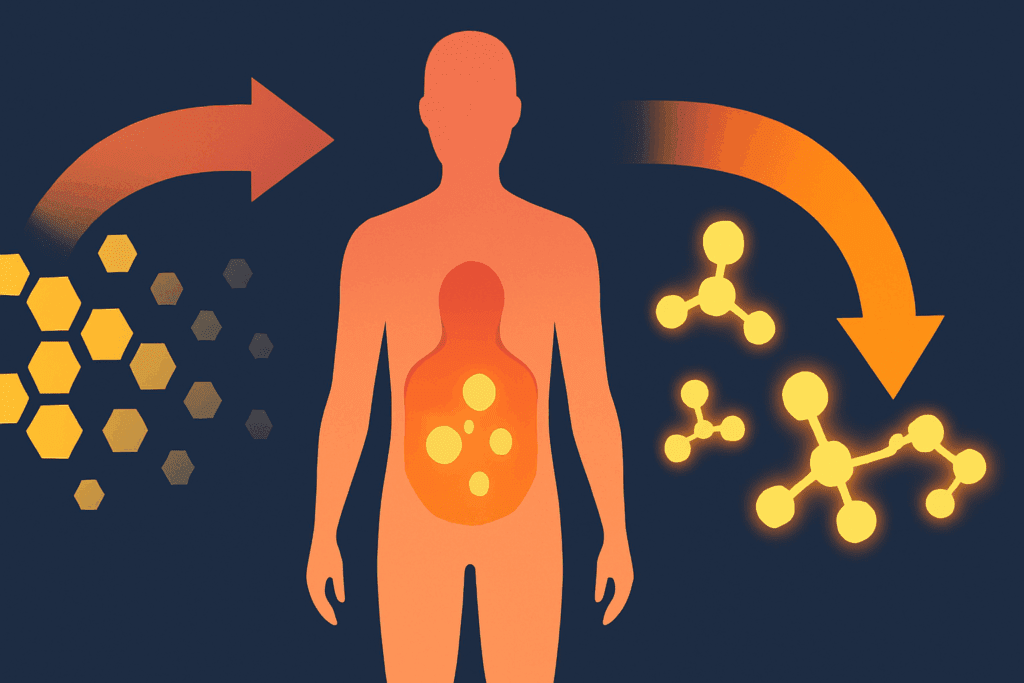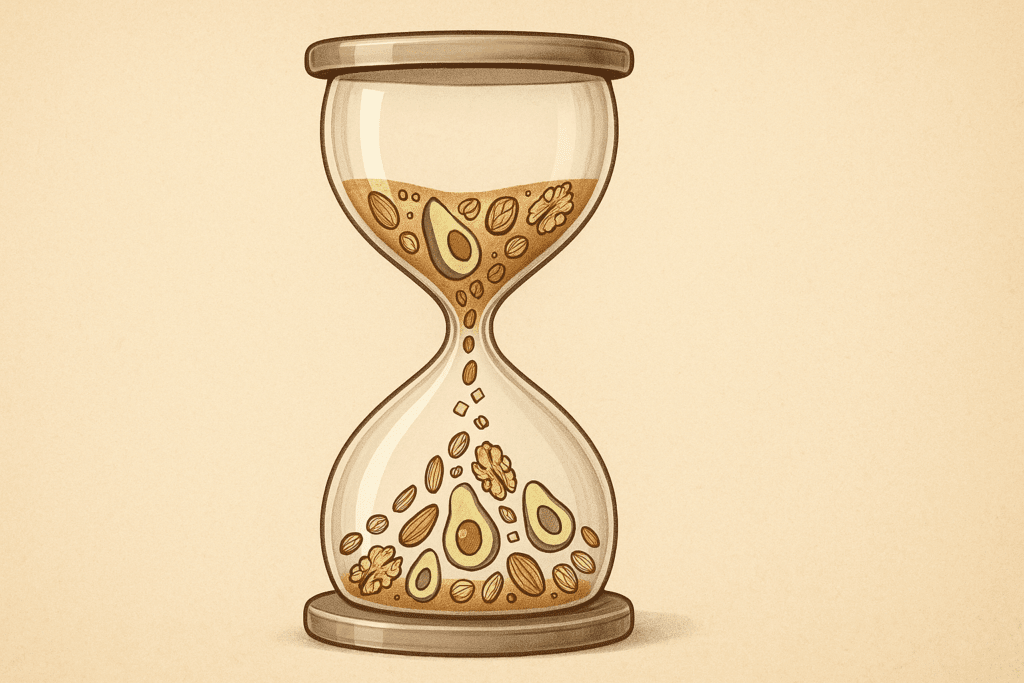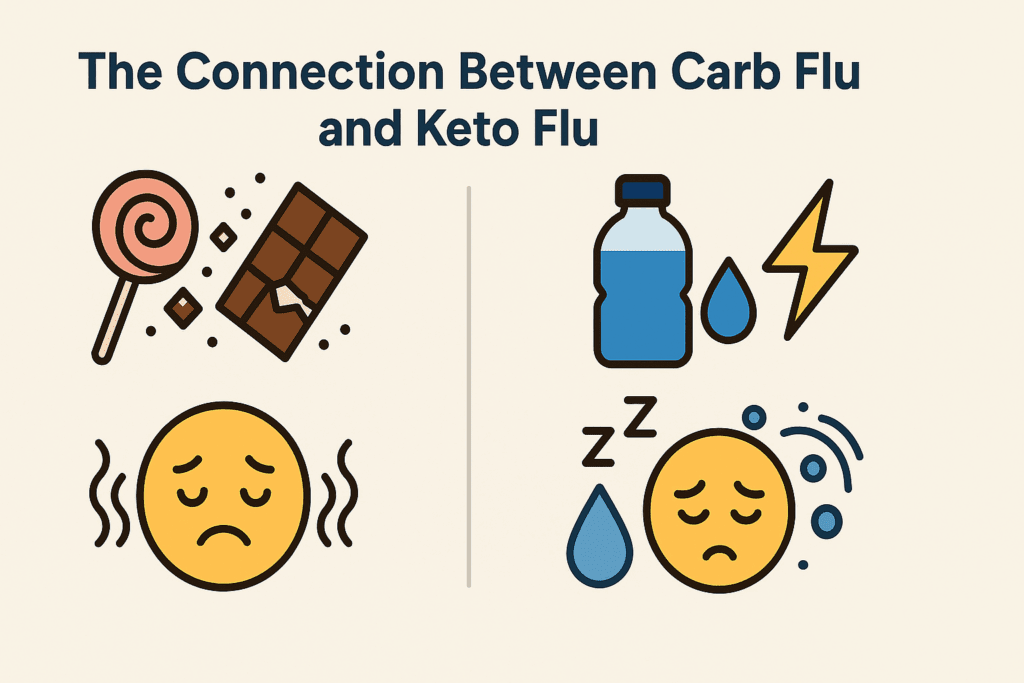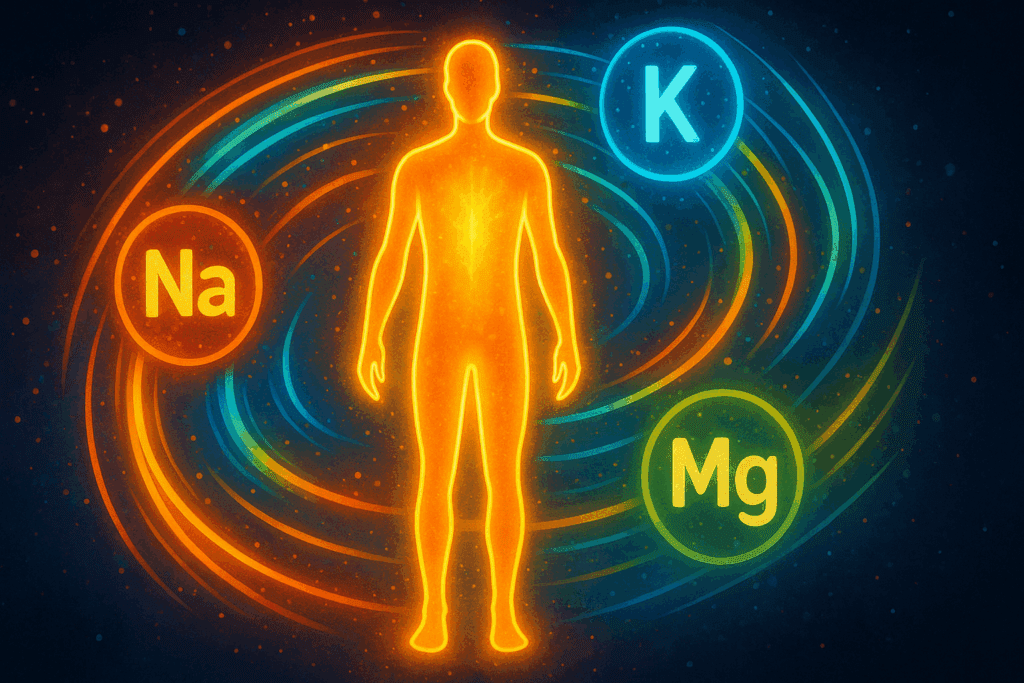Adopting a ketogenic diet is often celebrated for its potential benefits, including weight loss, better insulin sensitivity, and enhanced mental clarity. Yet, the transition into this high-fat, low-carbohydrate eating plan isn’t always smooth. Many newcomers to the keto lifestyle report a host of unpleasant symptoms during the initial days or weeks. Collectively known as the “keto flu,” these symptoms are temporary for most people but can be intense enough to make some question whether the diet is worth continuing. In this article, we explore what keto flu symptoms are, examine whether keto can cause dizziness, shakiness, and anxiety, and assess the potential dangers and implications for overall wellness.
You may also like: Is the Keto Diet Safe or Dangerous? What Experts Say About the Risks, Benefits, and Basics of the Ketogenic Diet

Understanding the Keto Flu: What It Is and Why It Happens
The term “keto flu” refers to a group of flu-like symptoms that some individuals experience during the early stages of ketosis. Ketosis is the metabolic state that occurs when the body shifts from burning glucose for energy to burning fat, producing ketones as an alternative fuel. This shift involves significant biochemical changes, including the depletion of glycogen stores, water loss, and changes in electrolyte balance. While not everyone experiences the keto flu, those who do often report symptoms such as fatigue, irritability, headache, dizziness, shakiness, and even a sensation of being warm or feverish without an actual fever.
The underlying mechanism behind these symptoms lies in the body’s sudden adaptation to a dramatic reduction in carbohydrate intake. Carbohydrates typically retain water and sodium in the body, so when carb intake drops, the kidneys excrete more sodium and water. This diuretic effect leads to dehydration and electrolyte imbalances—specifically low levels of sodium, magnesium, and potassium—which are thought to drive many of the unpleasant sensations associated with keto flu. This physiological response has also led some to use the term “carb flu” interchangeably with keto flu, although the symptoms stem from the metabolic state of ketosis rather than carbohydrate withdrawal per se.

Can Keto Cause Dizziness, Shakiness, and Anxiety?
Among the most commonly reported symptoms during the onset of ketosis are dizziness, shakiness, and heightened anxiety. These manifestations are not only uncomfortable but can be disorienting and potentially concerning, especially for individuals unfamiliar with the diet’s early effects. The question, then, is not just anecdotal but clinically relevant: can keto cause dizziness, shakiness, and anxiety? The answer appears to be yes, albeit typically as a temporary phase rather than a sign of long-term harm.
Dizziness may occur due to rapid fluid loss and a decline in blood pressure, a direct result of the body’s natural reaction to low carbohydrate intake. Hypoglycemia, or low blood sugar, can also contribute to sensations of lightheadedness, especially in the early stages of keto when the body hasn’t fully adapted to burning fat for fuel. Shakiness often accompanies this blood sugar dip, particularly if one was previously accustomed to frequent carbohydrate-rich meals that kept blood glucose levels stable. Anxiety, on the other hand, may stem from a combination of factors: electrolyte imbalances affecting neurotransmitter function, perceived stress from dietary change, or the physiological stress of sudden dietary restriction. For some individuals, anxiety is exacerbated by the general sense of unease triggered by other symptoms such as fatigue and dizziness.
Debunking Misconceptions: Is Keto Flu Dangerous?
With the array of symptoms associated with keto flu, it’s natural to wonder: is keto flu dangerous? In general, keto flu is not medically dangerous for most healthy individuals. However, it can feel severe enough to disrupt daily life or prompt individuals to abandon the diet prematurely. The key is to differentiate between manageable adaptation symptoms and signs of a more serious condition.
For example, if dizziness is accompanied by fainting, severe electrolyte imbalance, or an irregular heartbeat, medical attention should be sought. Similarly, persistent shakiness or anxiety that escalates into panic or interferes with sleep and concentration could indicate that the diet is not suitable without medical supervision. In otherwise healthy individuals, these symptoms are usually temporary and can be alleviated with adequate hydration, proper electrolyte supplementation, and a gradual reduction in carbohydrate intake rather than a sudden plunge into very low carb territory.
It is also worth noting that some individuals may interpret these symptoms as signs that the keto diet is inherently unhealthy or damaging. However, when implemented thoughtfully and monitored properly, a ketogenic diet can be both safe and beneficial. The risk lies not in ketosis itself but in poor preparation and inadequate nutritional support during the adaptation phase.

How Long Does Keto Flu Last?
One of the most frequently asked questions from individuals new to the ketogenic diet is: how long does keto flu last? The answer varies from person to person, but most experience symptoms for a period of several days to about a week. In rare cases, symptoms may linger for up to two weeks, especially if the transition to ketosis is abrupt or the diet lacks adequate micronutrient support.
The duration of keto flu largely depends on several factors, including baseline health, prior diet, hydration status, and electrolyte intake. Individuals who previously consumed a high-carbohydrate diet are more likely to experience a more intense onset of symptoms. Conversely, those who taper their carb intake more gradually or begin supplementing with sodium, potassium, and magnesium often find that their symptoms are milder and resolve more quickly.
In most cases, the body gradually adapts to utilizing ketones for fuel, and the unpleasant side effects diminish as electrolyte balance is restored and hydration improves. However, the experience of “waiting it out” can be daunting, particularly if dizziness, shakiness, or anxiety are interfering with daily functioning. This is why proper preparation and support are essential before initiating a ketogenic eating plan.

The Connection Between Carb Flu and Keto Flu
The terms “carb flu” and “keto flu” are often used interchangeably, but they do carry slightly different connotations. Carb flu generally refers to the withdrawal-like symptoms that arise from reducing carbohydrate intake, such as cravings, mood swings, and fatigue. Keto flu, by contrast, refers specifically to the physiological transition into ketosis and the accompanying symptoms like dizziness, shakiness, and electrolyte loss.
Understanding the difference between carb flu and keto flu is important because it shapes how one approaches management and prevention. Carb flu can often be mitigated through slow dietary adjustments and the inclusion of low-glycemic vegetables to ease blood sugar fluctuations. Keto flu, however, is more directly tied to physiological changes in fluid and mineral balance. Addressing it requires deliberate attention to hydration, sodium intake, and possibly the use of bone broth or electrolyte-enhanced beverages.
Ultimately, both carb flu and keto flu are rooted in abrupt dietary change, but their underlying causes and symptoms vary. Being informed about these distinctions allows individuals to prepare more effectively and avoid unnecessary discomfort, particularly during the first crucial days of dietary transition.

Does the Keto Diet Make You Tired and Dizzy?
Fatigue and dizziness are hallmark complaints among those starting a ketogenic diet, and this has led many to ask: does the keto diet make you tired and dizzy? In the initial phase, the answer is commonly yes, but the reasons are multifaceted and generally not indicative of long-term dysfunction.
Tiredness may arise as the body exhausts its glycogen reserves, which are typically stored in the muscles and liver. This depletion results in a temporary drop in energy levels until the body begins producing sufficient ketones to fuel its daily metabolic demands. During this transition, individuals may feel as though their stamina has dropped, even during routine activities. Dizziness often coexists with this fatigue due to shifts in fluid and electrolyte balance, which can influence blood pressure and cerebral blood flow.
These symptoms, though distressing, are usually short-lived and reversible with appropriate dietary strategies. Drinking plenty of fluids, salting food adequately, and incorporating potassium-rich vegetables like spinach and avocado can make a significant difference. Some individuals also benefit from light physical activity, which helps improve circulation and facilitates metabolic adaptation.
Why the Keto Diet May Make You Feel Warm
Another curious symptom reported during keto adaptation is a sudden sensation of feeling warm, even when there is no fever or external temperature change. This raises the question: does the keto diet make you feel warm, and if so, why?
There are a few plausible explanations. First, the metabolic shift to ketosis increases mitochondrial activity, which can raise basal metabolic rate and heat production. Second, the breakdown of brown adipose tissue—a type of fat involved in thermogenesis—can contribute to a sensation of internal warmth. Finally, electrolyte shifts may influence nerve conduction and vascular function in ways that alter how the body perceives temperature.
While this warming sensation is typically not a cause for concern, it can be startling for individuals who associate heat with illness or inflammation. It is important to monitor body temperature and ensure that this sensation is not related to an actual fever or infection. In the absence of such signs, feeling warm on the keto diet is generally harmless and may even indicate that the body is actively entering ketosis and ramping up fat metabolism.

Electrolyte Management: The Key to Mitigating Keto Flu Symptoms
One of the most effective strategies for preventing or managing keto flu symptoms is ensuring proper electrolyte balance. Since ketosis promotes fluid loss and increased urination, individuals on a ketogenic diet lose more sodium and other essential minerals than usual. If not replenished, these losses can lead to symptoms like dizziness, shakiness, anxiety, and fatigue.
Sodium, potassium, and magnesium play critical roles in nerve transmission, muscle contraction, and cardiovascular function. When their levels drop, even slightly, the body responds with a range of distress signals that mimic illness. For instance, low sodium can cause confusion and lightheadedness; insufficient potassium may lead to muscle weakness or heart palpitations; and magnesium deficiency can exacerbate anxiety and irritability.
Correcting these imbalances can be as simple as adding mineral-rich foods to the diet or using supplements under medical guidance. For example, consuming avocados, leafy greens, nuts, and seeds can provide valuable sources of potassium and magnesium. Drinking bone broth or adding a pinch of sea salt to water can help restore sodium levels. The key is to act proactively rather than reactively—ensuring that electrolytes are maintained before symptoms escalate.

Psychological Effects of Keto Flu: Anxiety and Mood Swings
While much of the discussion around keto flu focuses on physical symptoms, the psychological effects deserve equal attention. For some individuals, anxiety, irritability, and mood swings are prominent features of the transition into ketosis. These symptoms often prompt concerns about whether the ketogenic diet is appropriate for those with a history of mood disorders.
Electrolyte imbalances can affect neurotransmitter function, particularly those involving GABA and serotonin. These neurotransmitters play a critical role in mood regulation, and their disruption can contribute to heightened emotional reactivity or anxiety. Additionally, the stress of dietary change and the fear of “doing it wrong” can exacerbate underlying mental health concerns, particularly if individuals are navigating the transition alone or without proper support.
That said, once the adaptation phase passes and ketosis stabilizes, many individuals report improved mood, mental clarity, and emotional resilience. The key is to distinguish between temporary transition effects and persistent mood disturbances that require medical evaluation. For those with a history of anxiety or depression, it’s advisable to consult a healthcare provider before starting a ketogenic diet, and to consider working with a dietitian or nutritionist during the adaptation phase.
When to Seek Medical Advice for Keto Flu Symptoms
Although keto flu is generally not dangerous, there are circumstances where medical advice is warranted. If symptoms persist beyond two weeks, worsen despite proper hydration and electrolyte management, or interfere with daily functioning, a healthcare professional should be consulted. Individuals with underlying health conditions, such as kidney disease, diabetes, or cardiovascular issues, should also approach the keto diet with caution.
It is especially important to seek help if symptoms such as fainting, heart palpitations, confusion, or chest pain occur. These could indicate more serious complications unrelated to simple electrolyte loss and require immediate attention. Personalized guidance from a medical professional can help ensure that the ketogenic diet is tailored to the individual’s health status and nutritional needs.
Frequently Asked Questions (FAQ): Keto Flu Symptoms, Side Effects, and Safe Adaptation Strategies
1. Can the keto diet cause psychological symptoms like panic attacks or mental fog in the first week?
Yes, the initial adjustment phase of a ketogenic diet can trigger psychological symptoms, including panic-like sensations, mental fog, and heightened irritability. While many people associate keto flu with physical discomfort, the cognitive effects can be just as impactful. One reason this occurs is due to changes in neurotransmitter activity as the brain shifts from relying on glucose to utilizing ketones. This abrupt metabolic transition, especially when coupled with low magnesium or sodium, may disrupt GABA and serotonin pathways, both of which help regulate calmness and focus. For some, the combination of dizziness, shakiness, and mental unease can feel overwhelming, making it easy to ask, can keto cause dizziness shakiness and anxiety? In many cases, these symptoms resolve with adequate hydration, micronutrient support, and gradual carbohydrate tapering.
2. What are the best strategies to prevent keto flu before starting the diet?
Prevention begins with preparation. One of the most effective ways to reduce the risk of developing keto flu symptoms is to ease into ketosis rather than making an abrupt shift. Gradually reducing carbohydrate intake over 7–10 days allows the body to begin metabolic adaptation without the shock that often brings on carb flu. Increasing sodium, potassium, and magnesium intake before starting the diet can also buffer the symptoms. For those wondering is keto flu dangerous, prevention strategies like this provide a proactive, low-risk approach that preserves energy levels and mental clarity.
3. How do sleep patterns affect the severity of keto flu symptoms?
Poor sleep can dramatically increase the intensity of keto flu symptoms. Inadequate rest impairs the body’s ability to regulate cortisol, the stress hormone that spikes during metabolic changes. When cortisol is elevated, symptoms like anxiety, shakiness, and fatigue become more pronounced. This means that people who start the ketogenic diet during periods of poor sleep or high stress may experience more noticeable dizziness and disorientation. If someone is wondering does keto diet make you tired and dizzy despite good nutrition, sleep hygiene should be a key area of focus. Improving sleep quality can buffer the body against many of the discomforts commonly grouped under keto flu.
4. Why do some people experience stronger keto flu symptoms than others?
Individual variability plays a significant role in the intensity of keto flu symptoms. Factors such as baseline insulin sensitivity, hydration status, previous diet composition, and even genetic differences in electrolyte regulation all influence the response. For example, someone transitioning from a highly processed, high-carb diet may experience more dramatic carb flu effects than someone whose previous diet was lower in refined sugars. People prone to low blood pressure may also be more likely to feel tired, dizzy, or shaky during the transition. This may lead them to ask can keto cause dizziness shakiness and anxiety when in fact their symptoms are due to underlying sensitivities rather than the diet itself being harmful.
5. Can keto flu symptoms return after being in ketosis for a while?
Interestingly, keto flu symptoms can recur even after the body has fully adapted to ketosis. This can happen if someone exits ketosis briefly and re-enters too quickly without proper preparation. It may also occur during periods of illness, increased stress, or inconsistent hydration, which destabilize electrolyte levels. The renewed symptoms often resemble the original carb flu effects and can include nausea, fatigue, shakiness, and brain fog. For individuals who ask how long does keto flu last, it’s important to know that while the initial phase may resolve within a week or two, similar symptoms may return if the diet is not consistently managed.
6. Does the keto diet make you feel warm because of inflammation or something else?
The sensation of feeling unusually warm during keto adaptation is often misinterpreted as a sign of inflammation or fever. However, this phenomenon is usually metabolic in nature. When the body ramps up fat oxidation and thermogenesis, the increase in internal heat production can cause a mild warming sensation, especially at night or during digestion. For those wondering does the keto diet make you feel warm, it’s usually a benign effect of increased mitochondrial efficiency, not a sign of fever or illness. However, a persistent or uncomfortable warmth should be evaluated for possible hormonal or thyroid-related causes, especially if paired with excessive sweating or heart palpitations.
7. Are there risks associated with managing keto flu symptoms incorrectly?
Yes, improper management of keto flu symptoms can lead to complications, especially when self-treatment neglects key electrolytes. Overuse of water without sodium replacement, for instance, can result in hyponatremia—a potentially serious condition caused by dangerously low sodium levels. Similarly, relying only on general multivitamins may not provide adequate potassium or magnesium support. These mistakes can worsen symptoms and may lead someone to ask, is keto flu dangerous, when in fact it’s the improper treatment that’s risky. Consulting a healthcare professional or dietitian who understands the ketogenic process can help prevent these avoidable issues.
8. What lifestyle factors make keto flu symptoms more tolerable?
Several lifestyle modifications can significantly improve one’s tolerance to keto flu symptoms. Daily gentle movement like walking or stretching can stimulate lymphatic flow and reduce fatigue. Mindfulness practices, including deep breathing or meditation, can help reduce the anxiety and restlessness sometimes associated with carb flu. Timing the start of a ketogenic diet during a calm life period—rather than amid major stress or travel—also improves outcomes. People often search does keto diet make you tired and dizzy because they begin without accounting for their lifestyle context. Supporting the nervous system with low-impact routines and stress-reducing activities makes a measurable difference.
9. Can keto flu symptoms interfere with blood pressure or cardiovascular health?
Yes, electrolyte imbalances associated with keto flu can affect blood pressure, particularly in individuals already prone to hypotension. Sodium depletion can lower blood pressure to the point of lightheadedness, and this is a primary reason people report keto flu symptoms like dizziness or fatigue. Individuals taking diuretics or blood pressure medications should be especially cautious when starting keto, as their medication needs may shift during the diet. In some cases, mild palpitations or irregular heartbeats may occur due to low potassium or magnesium. These symptoms do not mean the diet is unsafe but underscore why it’s critical to monitor cardiovascular markers during the early stages of adaptation.
10. Is there a difference in how men and women experience keto flu?
Emerging evidence suggests that hormonal differences may influence the intensity and profile of keto flu symptoms between men and women. For example, women may experience more pronounced anxiety or mood-related issues, potentially due to interactions between the ketogenic state and estrogen-related neurotransmitter regulation. Men, on the other hand, often report more noticeable drops in energy and performance early on, possibly tied to shifts in testosterone or cortisol levels. This can shape how people interpret their symptoms—with questions like can keto cause dizziness shakiness and anxiety often arising more frequently among women, while men might emphasize stamina and focus. Gender-informed strategies may be helpful, such as prioritizing adaptogenic herbs, iron-rich foods, or different macronutrient ratios depending on individual hormonal needs.
Conclusion: Navigating Keto Flu Symptoms Safely and Effectively
The ketogenic diet continues to gain popularity for its potential health benefits, but the initial transition period can be fraught with discomfort. Understanding the range of keto flu symptoms, including dizziness, shakiness, anxiety, and feelings of warmth, is crucial for navigating this phase with confidence. While these symptoms may prompt concern, they are typically signs that the body is adjusting to a new metabolic state—not indications of harm.
By asking questions like “can keto cause dizziness shakiness and anxiety” or “is keto flu dangerous,” individuals demonstrate a responsible approach to managing their health. The answers to these questions lie not in abandoning the diet but in understanding and mitigating the physiological processes at play. Ensuring adequate hydration, supporting electrolyte balance, and recognizing the temporary nature of symptoms can make the difference between a successful dietary shift and a premature retreat.
Ultimately, knowing how long keto flu lasts, understanding what causes it, and distinguishing it from the general “carb flu” empowers individuals to make informed decisions. With the right preparation and support, most people can transition into ketosis safely and reap the benefits of a well-managed ketogenic lifestyle. If symptoms persist or escalate, professional guidance is not only prudent but essential to ensuring long-term wellness. As with any dietary change, personalization and medical insight are the foundations of sustainable success.
Further Reading:
Keto Flu: What It Is and How to Get Rid of It


